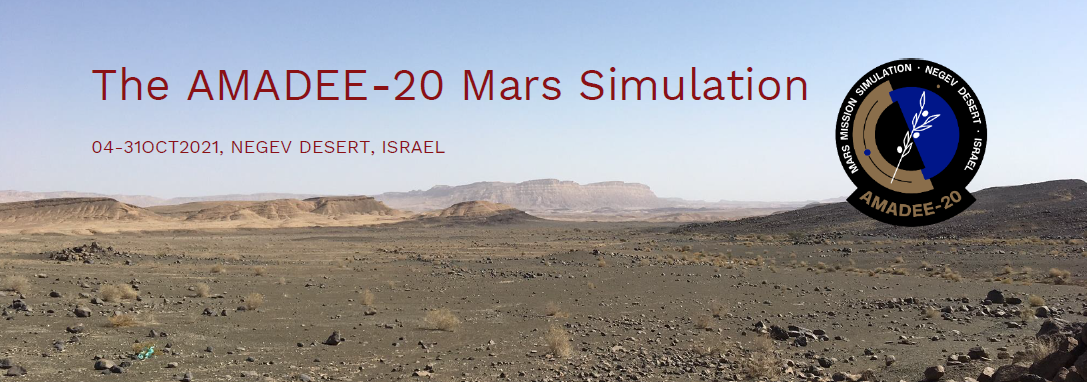AMADEE-24

Mission Information
AMADEE-20 is a Mars analogue simulation in the Negev Desert, Israel, managed by the Austrian Space Forum and hosted by the Israeli Space Agency taking place between October and November 2020.
Simulating Mars Human-robotic surface activities in terrestrial analogues has evolved into an efficient tool for developing exploration mission architectures. They facilitate the understanding of the advantages and limitations of future Human planetary missions, becoming an added value for the development of remote science operations, helping to understand the constraints and opportunities of the technology and work-flows.
The test sites will be selected for their geological and topographic similarity to Mars. The AMADEE-20 mission presents an excellent opportunity to:
- Study equipment behaviour involving the simultaneous usage of instruments with the option of humans-in-the-loop (via two high-fidelity spacesuit simulators, portable system, etc.)
- The development of platforms for testing life-detection or geo-science techniques, robotic support tools for human missions and concepts for high situational awareness of remote support teams.
- Study the analogue as a model region for their Martian counterparts.
- Serving as a catalyst to increase the visibility of planetary sciences and human exploration.
- Evolving the know-how of managing human missions to Mars deploying a realistic model for Mission Support centre – Astronaut actions and the encompassing decision making framework.
End of Mission
The Mission was succesfully conducted and ended on the 31Oct 2021. As one of the main output documents we are proud to present the Mission Report to all of you. Please find the Report by clicking on the link below.
Experiments:
| Name | Description | Organisation | |
|---|---|---|---|
| GEOS-24 | Application of the Exploration Cascade & Sampling strategy, geomapping & IR/RAMAN spectroscopy | Austrian Space Forum, Austria | |
| Staying Alive! | A photobioreactor as the air revitalization component of the Hab life support system, equipped with a situationally aware and interactive sensor network. The study also assesses the psychological impact, reactor control from Earth and crew interfacing. | ZARM -Center of Applied Space Technology and Microgravity, University of Bremen, Germany |